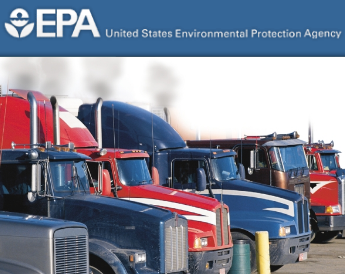Welcome to our new and fully revamped site at www.fullltruckload.com and the the first edition of our regular blog that will look at news from throughout the trucking sector and especially the full truckload market for long haul shipments. This blog will complement our existing blogs, if you have time we encourage you to visit them at hotshottrucking.com, samedaydelivery.com, expeditedfreight.com and airfreight.com.
Across our group of companies we provide premier expedited ground and air freight solutions throughout North America, we hope you enjoy the blogs and visit us again soon. This week it's been interesting to see the newest round of EPA standards released with the dual goal of reducing pollution and improving fuel efficiency
 Naturally the standards take a long term approach but the target is a 24% reduction in CO2 emissions over the next dozen years. The goals apply to apply to tractor-trailers, large pickups and vans in addition to all buses and work trucks. The response from the industry has been mixed but primarily positive even if the perception from some is that such goals may be over ambitious, although you have to aim high we feel.
Naturally the standards take a long term approach but the target is a 24% reduction in CO2 emissions over the next dozen years. The goals apply to apply to tractor-trailers, large pickups and vans in addition to all buses and work trucks. The response from the industry has been mixed but primarily positive even if the perception from some is that such goals may be over ambitious, although you have to aim high we feel.
On the other hand, continuing improvements in fuel efficiency will be welcomed throughout the nationwide trucking sector as fuel costs account for the single largest expense for any fleet. Importantly it will be key to see a collaborative and supported approach between the government and the trucking industry as naturally all parties seek the improvements that are the underlying objective behind the proposals.
About the EPA Phase 2 Regulations: "The U.S. Environmental Protection Agency (EPA) and the Department of Transportation’s National Highway Traffic Safety Administration (NHTSA) are jointly proposing a national program that would establish the next phase of greenhouse gas (GHG) emissions and fuel efficiency standards for medium- and heavy-duty vehicles. This “Phase 2 program” would significantly reduce carbon emissions and improve the fuel efficiency of heavy-duty vehicles, helping to address the challenges of global climate change and energy security." Full details and downloads available via this link.
AirFreight.com 10 X Growth Plan
Amet minim mollit non deserunt ullamco est sit aliqua dolor do amet sint. Velit officia consequat duis enim velit mollit.
AirFreight.com 10 X Growth Plan
Amet minim mollit non deserunt ullamco est sit aliqua dolor do amet sint. Velit officia consequat duis enim velit mollit.
AirFreight.com 10 X Growth Plan
Amet minim mollit non deserunt ullamco est sit aliqua dolor do amet sint. Velit officia consequat duis enim velit mollit.
AirFreight.com 10 X Growth Plan
Amet minim mollit non deserunt ullamco est sit aliqua dolor do amet sint. Velit officia consequat duis enim velit mollit.

